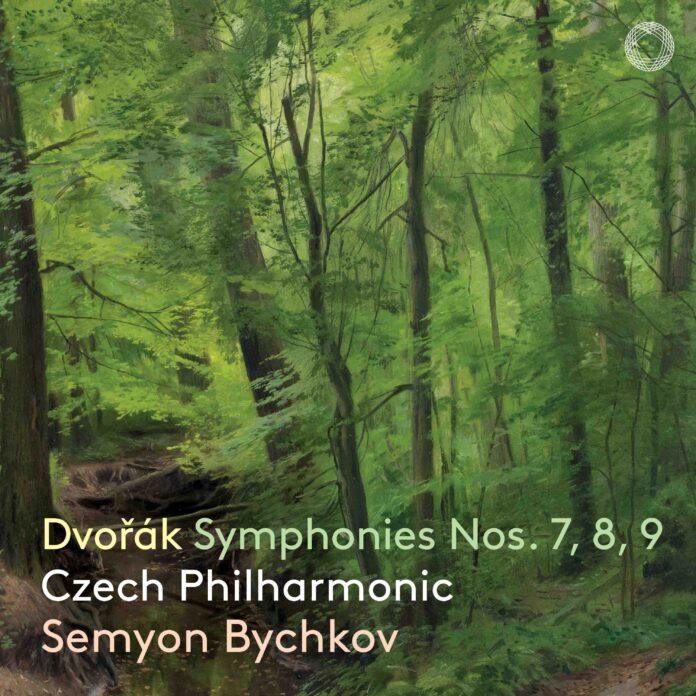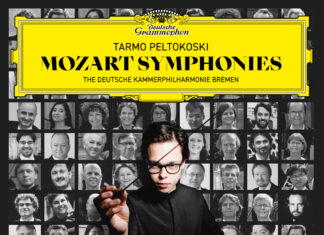Review: Dvorak Symphonies 7, 8, 9 / Bychkov / Czech Philharmonic Orchestra / Pentatone
This is a decent new set of the last three Dvořák symphonies. Although I haven’t seen Bychkov live, based on his YouTube performances, his interpretations are usually thrilling and dramatic. Unfortunately, there is nothing particularly thrilling or dramatic in this release.
While reviewing this set, I revisited performances by Kubelík, Kertész, Munch, Giulini, Dohnányi, and the more recent Dudamel for comparison.
The Czech Philharmonic plays well, with especially lovely woodwinds in Symphony No. 8. I won’t compare it to the sheen and sparkle of Kubelík’s Berlin Philharmonic—that wouldn’t be fair—but even when held up against other Czech Philharmonic recordings, something feels lacking. Where’s the character? Neumann’s recordings, for instance, are brimming with vitality, especially from the brass section. Here, the energy is muted. I’d attribute this to a combination of Bychkov’s more cautious approach and a somewhat flat recording quality.
First, regarding the recorded sound: yes, Pentatone typically offers exemplary quality, but here the orchestral sound feels muffled and dull. As a result, the horns don’t cut through with blazing energy in the louder passages, and the strings, as mentioned earlier, lack the sparkling vitality these works require. My biggest concern is the tone of the timpani; while all the percussion is audible, the timpani sound soft and muffled (the opposite of Kubelík in this respect), which is particularly problematic in the Ninth Symphony.
The Seventh Symphony comes off reasonably well but feels somewhat routine. After listening, I couldn’t pinpoint any standout moments. Everything is in place, and Bychkov even highlights some textures that are often overlooked in other performances, but what’s missing is the epic grandeur. The symphony opens with a bold, mysterious statement, but that mystery isn’t sustained throughout the performance. Bychkov’s handling of the inner movements works better—both the Poco Adagio and Scherzo have more character, and he showcases the Czech Philharmonic’s beautiful wind section to good effect.
Symphony No. 8, on the other hand, is a bit more of a mixed bag. Bychkov takes a more idiosyncratic approach, with the opening movement sounding more hesitant and darker than usual, and there’s a nice touch of vibrato from the Czech strings. Bychkov introduces some micromanagement of dynamics and phrasing here and there, such as the pianissimo at 1:25 and the noticeable diminuendo at 1:46. These are thoughtful touches, but I feel Dvořák’s symphonies benefit from a more free-flowing approach. A good example is the forte passage at 6:25 in the first movement: Kubelík turns this into a cosmic event, with menacing strings and blazing horns, but here it sounds more routine.
The second movement of the Eighth, one of Dvořák’s finest, lacks drama and tension—qualities that usually enhance this movement. The third movement Scherzo, typically driven by an infectious dance rhythm, feels flat, especially when compared to recent performances like Dudamel’s or the lively wind work of Giulini. That said, the string section under Bychkov’s direction is excellent The last movement of this symphony is the biggest disappointment: the horns aren’t prominent enough, and the pacing feels rhythmically stodgy, with a coda that is uneventful. For a great finale to the Eighth, I recommend Munch, Karajan (his earlier Decca recording), or for something more distinctive yet well thought-out, Honeck with the Pittsburgh Symphony.
So, how does the Ninth fare? While there’s nothing particularly wrong with it, much is left to be desired, especially in terms of energy. The fire is missing, and the epic element—so essential to this work—is lacking. The slower parts are nicely shaped, but I must once again mention the electrifying Kubelík, who propels the first movement with woodwinds that cut through and thunderous timpani. The bucolic elements of the slow movement are present, but the Scherzo could use more drive. As for the final movement, it starts off impressively but soon loses momentum.
Overall, the playing is solid, and I appreciate some of the conductor’s insights. However, these symphonies demand freshness, vitality, and bursting excitement—qualities that I personally didn’t find in this release. And as mentioned earlier, the slightly veiled sound of the recording doesn’t help either.






